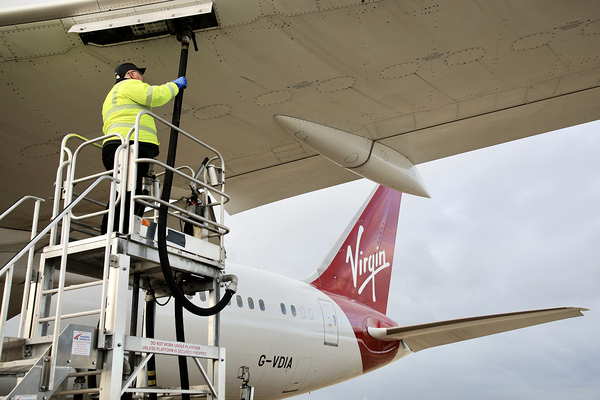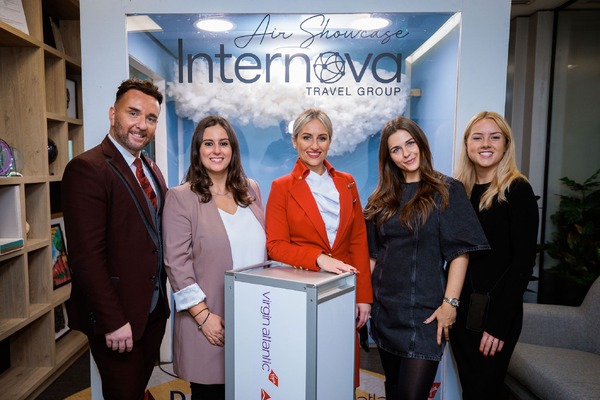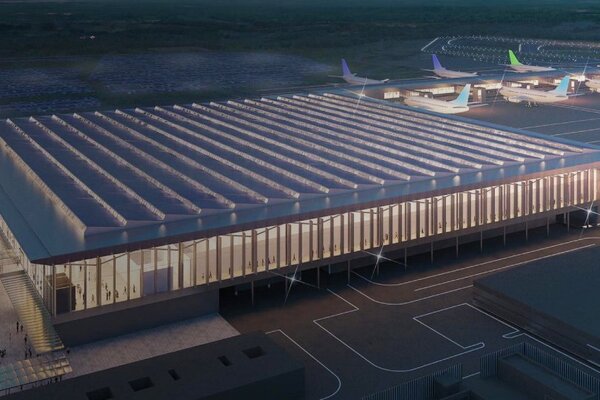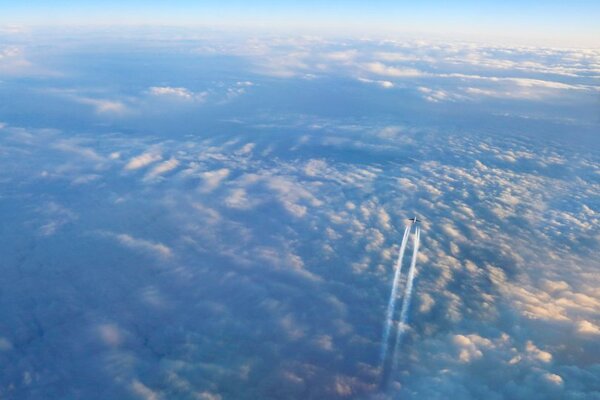Virgin Atlantic's groundbreaking 100% SAF flight ‘cut emissions by two-thirds’
 Gary Noakes
Gary NoakesVirgin Atlantic’s 100% alternative fuel-powered test flight last year – the first of its kind – reduced CO2 emissions by two-thirds, new data has shown.
Flight 100, operated by a Boeing 787 twin jet, flew from Heathrow to New York last November powered entirely by sustainable aviation fuel (SAF).
Revealing its findings from the flight, Virgin on Tuesday (7 May) said the operation had proved SAF was a “safe drop-in replacement for fossil fuel”.
“The use of 100% SAF saved the life-cycle equivalent of 95 tonnes of CO2," said Virgin. "Or 64% of the emissions of a standard London Heathrow to New York JFK flight."
Virgin said this equalled removing 54 cars from the road for a year. The flight also accounted for a particulate reduction of 40%, while SAF was found to produce 1% more energy compared to the same mass of fossil fuel.
However, the fuel used was 87% produced from waste fats sourced from Portugal and Austria. These are likely to be animal fats, as Virgin stressed there was no used cooking oil involved. Environmentalists argue these are not truly sustainable.
The remaining 13% of the mix was from dextrose produced from industrial corn starch.
Operational efficiencies, meanwhile, also helped reduce fuel burn. Direct routing and reduced taxi time resulted in 2.2 tonnes of jet fuel saving, or 4% of overall fuel burn.
Virgin repeated its call for more investment in the SAF industry: “SAF is the only viable mid-term solution to decarbonise long-haul aviation, it needs to be produced at scale," it said.
"The UK government must now urgently match its ambition with action by investing in a revenue certainty mechanism to support the creation of a UK SAF industry."
The flight followed more than a year of collaboration by a Virgin-led consortium including Boeing, Rolls-Royce, Imperial College London, University of Sheffield, ICF and the Rocky Mountain Institute. A consortium led technical "deep dive" into the findings will take place on 3 June.
‘SAF is safe, we will fly it’
Shai Weiss, the airline’s chief executive, said: “Flight 100 was more than a year in the making, demonstrating that together we can achieve more than we can alone. We have demonstrated that it can be done – SAF is a safe drop-in replacement for fossil fuel and can be used with today’s infrastructure.
“We are ready to fly 100% SAF, but a scale-up in production of around 100 times from where we are today is needed to meet 10% SAF by 2030.
"We must now see urgent action from government, oil majors and private capital to invest in the production capacity needed to deliver a thriving UK SAF industry.
"We’ve proven that if enough SAF is made, we will fly it.”
TTG’s interim editor, Sarah Dennis, was one of a handful of media onboard Flight 100 last November.
Sign up for weekday travel news and analysis straight to your inbox

Gary Noakes
Supplier Directory
Find contacts for 260+ travel suppliers. Type name, company or destination.














